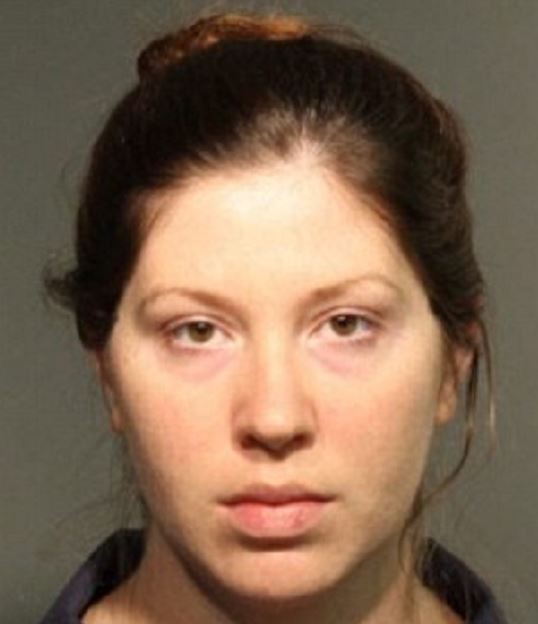Pseudoscience in Veganism

This post was originally featured on Be Vegan Anywhere, a site Surly Amy & I founded to help make veganism accessible to as many people as possible. Shout out to drrubidium for linking us to the news story!
In today’s “WTF?!” news, a Florida mother has been taken into custody for neglect after she disregarded her pediatrician’s directive to have her dehydrated baby hospitalized – citing “strong vegan beliefs.” According to investigators, Sarah Anne Markham chose to feed her child an “organic soy formula” (Markham allegedly stated that she knew it was safe because it came from Whole Foods), instead of the formula suggested by her child’s pediatrician. After finally telling officers she would take her baby to the hospital, she sat in her home for an hour at which point officers decided to arrest her.
This story makes me incredibly sad, though I’m happy that the baby is in state custody and should now be getting the care it needs. While I don’t feel qualified to speak to the larger issue of whether it’s safe to feed your baby an all vegan diet (maybe someone at Grounded Parents could help out!), I think it’s safe to say this mother did not do so in a safe manner. And although “holistic” medicine like Markham was attempting to practice and general “woo” aren’t automatically tied to veganism, the two appear to be often intertwined to an alarming degree. This relationship, fostered in no small part by buzzwords like “organic” and shops like Whole Foods, is doing vegans a disservice.
Many people like to claim that pseudoscience is innocuous (“So what if homeopathy is just a placebo as long as people feel better?”), but a quick look at the case of Ms. Markham makes it clear that isn’t always the case. For many of us, the goal of being vegan is to reduce harm, and that includes doing so amongst our fellow humans. One way to do so is by promoting healthy skepticism in the vegan community. Not only does this lend our position more credibility, but most importantly: it helps keep us safe and healthy.





Just… wow. “Strong vegan beliefs?” What the hell should strong vegan beliefs have to do with completely rejecting science and medicine? This woman is completely skewed.
The idea that any given merchandise is always safe, particularly for an infant in need of medical care, is ludicrous. I doubt that Whole Foods would have agreed with Ms. Markham’s choice to feed her child their products while ignoring the pediatrician.
Healthy skepticism… Yeah, would love to see that, but we are talking about people that fear an industry that is worth a few hundred billion, because its “big business” and “can’t be trusted”, and so run out and buy everything they ever hear about from a mere tens of billions of dollars, in size, industry, because those people “can be trusted”. An industry, if we want to be honest, which was a tiny, unheard of, fringe, at recently as 1993, until it was pretty much completely deregulated, as part of the “save me vitamins!” campaign, something else which it turns out isn’t very safe of healthy, or, at best, still has, “unknown effects, since there is no legal requirement to test for them”, in larger than “normal” amounts (like you get from food).
Sigh….
I think the rule for vegan diets (though I’m not sure when it’s safe to begin one) is that, at all ages, certain micronutrients (mostly vitamin B12, but I imagine in infants also vitamin D, since they even recommend vitamin D supplements for breastfed infants) need to be supplemented. A multivitamin should cover it. (And of course, going to heavy on the vitamins is itself harmful.) Though when you consider the supplement industry’s connection to some pretty shady stuff, like AIDS denialism, it becomes an ethical issue in and of itself.
Is it OK to be amused that a “healthier diet” needs to be “supplemented”, because it, apparently, creates the same sort of deficiencies that stuff like Golden Rice was invented for – a lack of certain things in the diet, or enough of them, to be “healthy”?
Actually, a balanced vegan diet doesn’t require any more or less supplementing than a balanced non-vegan diet. We get B12 and D from fortified foods like everyone else. B12 is found in all sorts of fortified foods, like cereals, certain non-dairy milks, nutritional yeast, and many “fake meat” products. We get D from exposure to sunlight, but it is also put into non-dairy milks. So, the assumption that a vegan diet needs to be supplemented in any different way than any other diet is false.
And your smugness is based on the assumption that the driving reason for being vegan is that it’s more healthy, but it is usually due to ethical reasons. There’s plenty of vegan food that’s not healthy (I’m looking at you, Oreos!).
‘Strong__beliefs’ are going to be a problem no matter what. If she wanted to allow her child to die because she was a Christian Scientist, a Jehovah’s Witness, or one of those Idaho/Washington nutballs with the secret cemeteries in the back yard, the law would probably be powerless, or unwilling, to stop her.
It is quite possible this same woman might put another child in danger over something she reads next week. Orthorexia by proxy?
I have strong beliefs in the power of rational skepticism and critical thinking. It’s strong beliefs in the things that lead people away from doubt that bother me the most.
The cases you mention depend on which state you’re in, thankfully. Some states have gotten the memo, others have not.